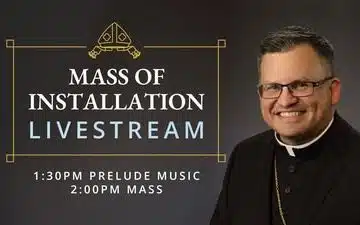Question of Faith: Indulgences? by Father Dave Endres
Question: I recently had the Church’s practice of indulgences explained to me. How does the Church have the authority to grant indulgences? And, since one of the requirements for an indulgence is detachment from sin, how can we know if our hearts are properly disposed to receive an indulgence?
Many Catholics are not aware that the Church continues the practice of granting indulgences. Since the practice is so often associated with medieval times, greedy churchmen and misguided peasants, it is common to assume that it ended hundreds of years ago. The buying and selling of indulgences – always contrary to Church teaching – was long ago corrected, but the theology of indulgences remains part of tradition and practice.
The Need for Mercy
Why does the Church offer indulgences? The answer is mercy. Where there is sin, there is a need for mercy. Christ gave the Church the authority to forgive sins in His name. Jesus said to the apostles: “Whose sins you forgive are forgiven them” (John 20:23). The Church continues to act as a mediator between God and man by offering forgiveness.
The Church understands that every sin has a “double consequence” – it harms our relationship with God and negatively impacts the whole human family (Catechism of the Catholic Church, 1472). Through sacramental confession, we mend our relationship with God, but the consequences of sin reverberate (which leads to what is called the temporal punishment due for sin). Indulgences heal the temporal punishment resulting from sin.
The Merits of Christ
As in the case of sacramental confession, the Church has the authority to grant indulgences because of Christ. Jesus tells Peter, “Whatever you loose on earth shall be loosed in heaven”
(Matthew 16:19). The Church does not only free us from sin but wants us to be free from the damaging effects of sin.
The Church’s authority to grant indulgences is not a legal matter. It is based in the theology of the Body of Christ, of which Jesus, the saints, the souls in purgatory and we all have a part. Each part of the body is connected and forms a whole. Thus, the merits of Christ and the saints compose an inexhaustible treasury of graces for us as members of the Church striving to get to heaven.
Our Cooperation
The Church, through the successors of St. Peter, the popes, grants us access to this treasury of graces from which indulgences are bestowed. The possibility of receiving an indulgence is often tied to certain spiritual activities, including reading the Scriptures, reciting the Rosary, taking part in Eucharistic adoration, or praying for the dead.
Receiving these graces, however, requires not just external acts, but most importantly, our interior cooperation. To receive a plenary (full) indulgence (removing all temporal punishment for sins previously committed), one must go to confession, receive Holy Communion, and pray for the intentions of the pope. In addition, one must be detached from sin. While there is no test to determine this, we can ask ourselves, “Do I want to refrain from sin?” We might find ourselves desiring this, but may still not be fully detached. In this case, we can receive a partial indulgence. God will work with us to supply the grace and mercy that we are open to receiving.
Christ gave the Church the authority to free us from sin and its consequences.
We draw on the merits of Christ and the saints, the source of forgiveness and salvation. This freedom that Christ gives us through the Church, however, is not magic. Indulgences require our cooperation, including our openness to God’s grace and our detachment from that which prevents us from serving Him.

Father David Endres is associate professor of Church history and historical theology at Mount St. Mary’s Seminary & School of Theology.













